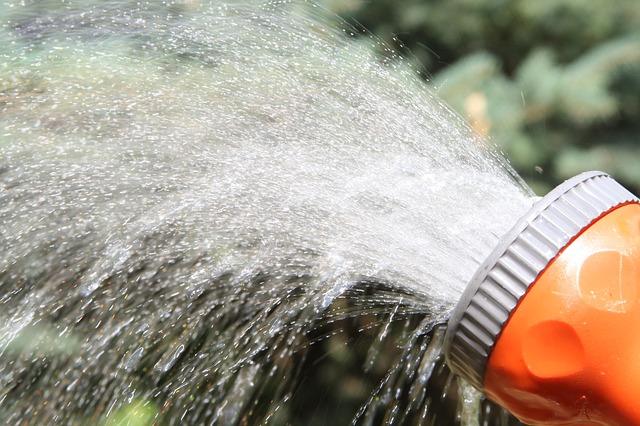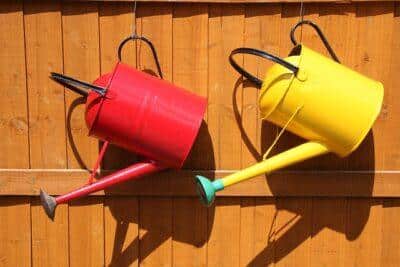[ad_1]
We take care to keep ourselves moisturized throughout the long, hot days of summer, but how many of us remember to do the same for our plants? Most gardeners, either experienced or new, know you need to water your crops to allow them to grow, but the question of “how much,” or simply “how,” creates an even bigger question. These questions are all part of watering smart.
While sun and heat are both good for your vegetable plants, too much can destroy the well-deserved crop. Your vegetables will wilt, wither and dry up. Because of this, you will need to water when needed, but not overdo it. Some gardeners don’t have the time to devote to a regular watering routine, especially during dry weather. As a gardener, you will need to learn to anticipate your garden’s needs and priorities. Let’s take a look at this important topic of watering during the summer.
The whole idea of watering your garden, is to replicate the soaking action of the rain. Not just a sprinkle, but an honest amount of rain. The water needs to be able to reach the very ends of the roots.
Roots of any plant will change their growth patterns in response to wet or dry growing conditions. Plants will close their stomata to preserve moisture during dry times, and roots will grow closer to the surface when the ground is extremely wet so they can get more oxygen.
Seamazing: The Low-Cost Way To Re-mineralize Your Soil
Smart watering saves on wasting time and, of course, saves water. There are ways to conserve water, while making sure the garden gets the moisture it needs. Keep in mind that freshly planted seeds need extra care and water. Cover them with burlap or flower pots on those really hot summer days.
Here are some ideas for keeping your garden hydrated during the hotter months.
Ideas for Wise Watering
1. Know your soil.
you have a garden with a lot of clay, remember that water will filter through very slowly. At least once a week you should give the garden and vegetables a good, deep soak. If you have ground that is more sandy, then water will go through it pretty quickly; you will have to soak more often. A deep soak twice a week should be good in this situation. Gardens in full sun will obviously dry out faster than those gardens situated in partly sunny to shady areas.
2. Mulch.
Mulch can be used around any plant, tree or shrub. It maintains moisture in the soil and creates a barrier between the plant and sun. Mulch also controls the soil temperature, giving protection to the roots. In simple terms, mulch controls and prevents inconsistent levels of moisture and temperature in the soil.
3. Longer watering, less often.
Instead of watering each day for short periods of time, it is better to space out your watering, and when you water, do it for longer. You want the water to saturate, but not flood, the soil. Having the water soak deep into the ground is better than giving a quick water to wet the soil. By watering longer, but less frequently, the water can soak down through the soil into the roots.
4. Keep the weeds under control.
Try to keep an eye on weeds, and get rid of them as soon as possible. Weeds will absorb the water and nutrients meant for your vegetable plants.
5. Timing.
Wise gardeners say the best times to water are in the morning or evening. The middle of the day is usually the hottest, and if you water plants during that time the water will evaporate very quickly, reducing moisture for the plants.
6. Use compost.
Compost can be used along with mulch or on its own. Not only does compost encourage healthy plant growth and nutrients, but it also absorbs and holds water.
A Final Thought on Effective Watering
If you don’t have a hose or watering can, try using an empty jug for gradual watering. Make small holes in the jug’s bottom edges. Place it (you may need more than one jug) in an area by your plants. When you fill the jug with water, the moisture will soak slowly into the soil by the roots.
Just like us, our gardens need to keep moisture levels just right to grow their best. Whether you have an abundance of time or just enough to keep your garden going, make sure you water wisely. Your garden will thank you.
What are your best watering tips? Share them in the section below:
Every Spring, Gardeners Make This Avoidable Mistake — But You Don’t Have To. Read More Here.
[ad_2]
Source link
Get more stuff like this
in your inbox
Don't Be Left Unprepared
Thank you for subscribing.
Something went wrong.








